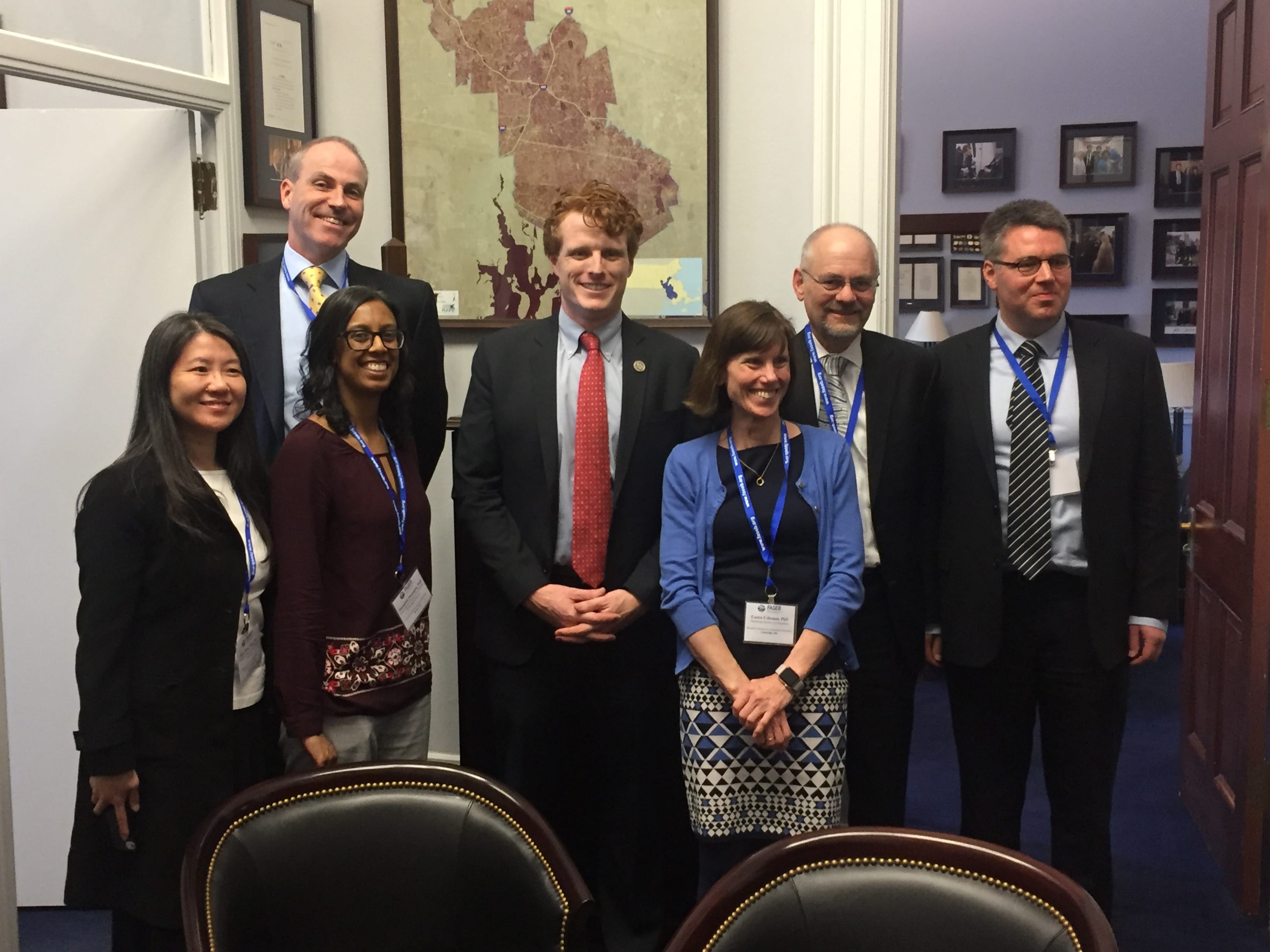Posted By: Derek Scholes, ASHG Director of Science Policy, and Jillian Galloway, Science Policy Analyst
As the year comes to an end, we thought it timely to reflect upon the Society’s many policy and advocacy accomplishments in 2017.
First, with the help of members and approval by the Board, we established a new policy platform. It will provide direction for ASHG’s policy and advocacy activities for the next several years. This is essential for communicating our perspectives to lawmakers and other stakeholders.
Early in the year, we took action to preserve the genetic privacy protections outlined by the Genetic Information Nondiscrimination Act (GINA). As strong supporters of GINA, we opposed the Preserving Employee Wellness Programs Act (H.R. 1313), a bill allowing employers to ask employees invasive questions about their and their families’ health, including genetic tests they may have undergone. We also encouraged members to contact their legislators and sign on to the ASHG opposition letter. More than 1,000 of you did so and it had a real impact: Our opposition to H.R. 1313 was widely reported in the media and since then, the bill has not moved forward in Congress.
In addition, ASHG supported a $2 billion increase in funding for the National Institutes of Health (NIH). We have seen a $2 billion increase in the NIH budget for 2018 and we ask that Congress continue the progress we have made. As we all know, we need robust, predictable, and sustainable federal funding to fuel scientific advances. Currently, federal agencies are operating under a “continuing resolution” (CR) set to expire December 22. With the deadline fast approaching, Congress needs to pass another CR to keep the government running into the new year.

More recently, we opposed any changes to the tax-exempt status of tuition waivers within the U.S. Congress tax bill called The Tax Cuts and Jobs Act (HR 1), as proposed by the House (but not the Senate). The House provision changed the tax-exemption status of tuition waivers commonly granted to graduate students, and taxing them would create financial hardship for individuals with already modest incomes. Thanks to the efforts of concerned members and other scientists, the final version of the tax bill does not include such a provision.
Also, this year the Society released a position statement on germline genome editing. This statement is the latest in a series that the Society issues periodically on a range of genetics policy issues and uses of genetic information. Written by a workgroup led by Kelly Ormond and Doug Mortlock, and including perspectives and feedback from members, the statement gives the Society’s perspective on the use of CRISPR/Cas9 or similar tools to alter the genome of an embryo or germ cell.
To help you learn more, share current policy information, and contact legislators directly, we also launched a new Advocacy Center. This site makes it easy for members to take action by sending customizable messages to Congress on important science policy issues, as well as learn when ASHG is speaking out and how to get involved. It links to ASHG statements, blogs, and press releases on pending genetics policy issues.
ASHG is working hard to keep you informed and empower you to influence science policy. In the new year, it will take all of us becoming engaged to build on the Society’s advocacy progress in 2017.
Derek Scholes, PhD, is Director of Science Policy at ASHG, and Jillian E. Galloway, MS, is a Science Policy Analyst at ASHG. Learn more about ASHG’s activities in Policy & Advocacy. and share your thoughts on policy issues or ASHG’s efforts by emailing policy@ashg.org.
